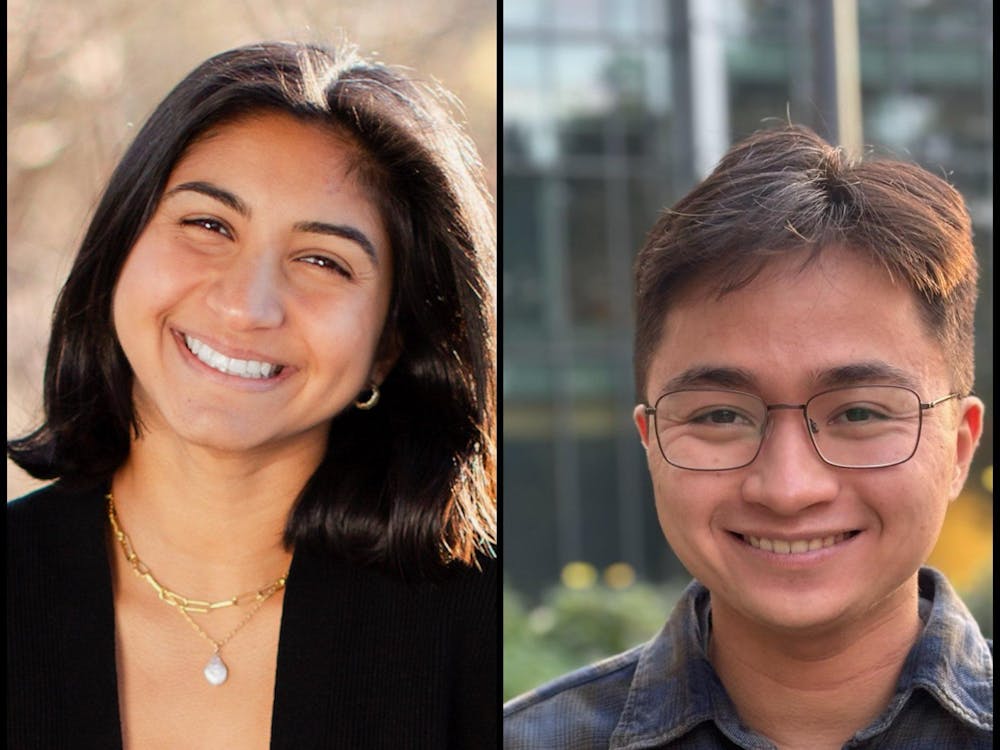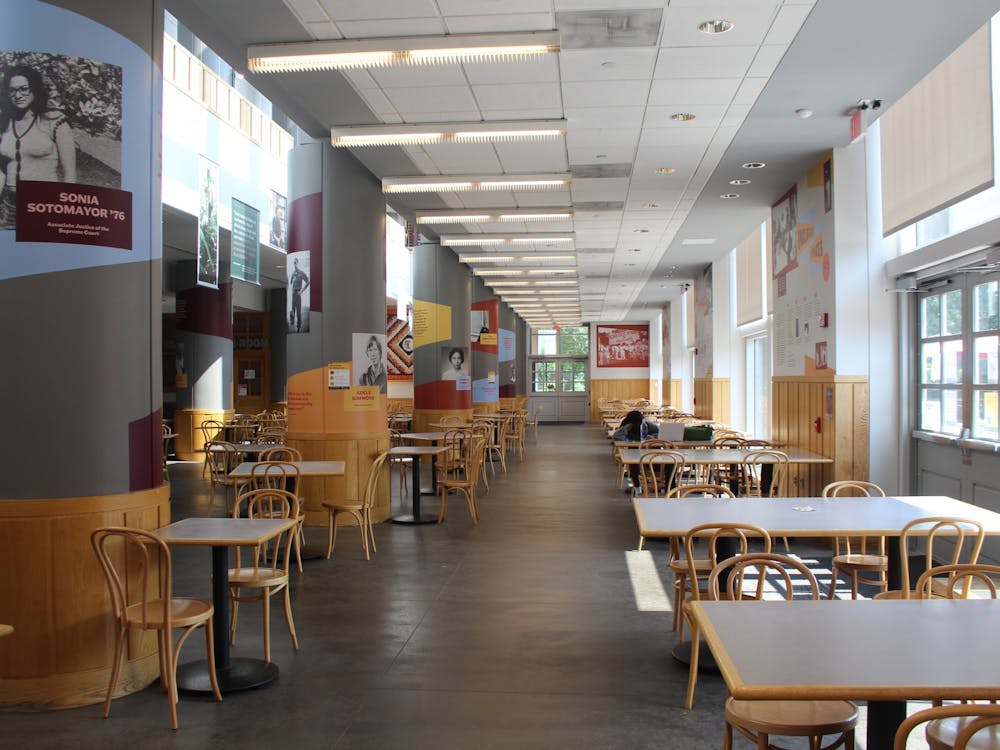In 1938, after his family emigrated to the United States from England, Robert "Pat" Cronin and his older brother Vincent attended boarding school in the Northeast.
As the two neared high school graduation, their mother asked a newly acquired lady friend which were the best universities in the country.
The woman replied, "My dear May, there are only three . . ."
After his graduation — although Vincent had chosen Harvard — Cronin made his way to Princeton. But it was not until more than fifty years later that he would earn his bachelor's degree at the University.
Having completed only two semesters at Princeton, Cronin withdrew in 1942, returning home to England to join the army during World War Two. Shortly thereafter, Cronin was assigned to the 43rd Light Infantry Regiment.
When the war ended, Cronin found himself in Trieste, Italy and was eager to go home. But demobilization came slowly for the British forces and it was not until the fall of 1947 that the army approved his release.
"What a delight [it was] to return to civilized life!" he said.
Cronin re-enrolled at Princeton in the spring of 1948 as a pre-med, biology major and remained for the last of the wartime summer terms. At that time, virtually all of the upperclassmen were ex-servicemen and many had since married and were living off-campus.

Cronin joined the University's soccer team and enjoyed eating club life. "I joined Colonial Club, largely because, being British, I felt like a colonial!" he chuckled.
Cronin was also involved in theater through the Princeton Players. He recalls his minor role in a production of Shaw's "Pygmalion" at McCarter Theater as his fondest memory of his acting days.
The director — worried that the audience would not understand the meaning of "bloody" in the script — asked Cronin to write to Shaw and ask for his permission to substitute "bloody" with "damn." Shaw's response? A one-line telegram: "Don't change a bloody word."
Although he enjoyed his time at the University, Cronin withdrew after completing his third year in 1949 in order to attend medical school at McGill University in Canada.

On winter weekends in Canada, Cronin and his friends would take the train up north to the ski hill and stay overnight in an area inn. During one of these trips, at the Gray Rocks Inn, Cronin met his future wife Sis, a ski instructor and part-time secretary.
Cronin graduated from McGill in 1953 and married Sis the following year. He completed his cardiology residency in London and returned to Canada as a research fellow at Montreal General Hospital. He later earned his masters at McGill and was on his way to earn his Ph.D, when he abandoned the program to pursue other career opportunities.
Before retiring to the United States, Cronin and his wife moved to his parents' house in Switzerland, where he took a consulting job with a private foundation seeking to provide low-cost health services in Kenya, Tanzania, India and Pakistan.
After retiring, though Cronin had spent much of his life working, there remained a project he had not yet completed: his undergraduate degree. "Fifteen years later, I retired at age 70 and, having little else to do, I began to think about returning to Princeton to earn my A.B. degree," he said.
Cronin contacted former classmate George Eggers, who had also joined the army after his freshman year and returned to pursue his degree at Princeton, graduating in 1969. He encouraged Cronin to follow the same path. "George was very helpful and invited me to visit him in Princeton," Cronin said. "He arranged an appointment [for me] with Associate Dean Dick Williams."
Dean Williams, however, was skeptical of Cronin's return. "At first I thought that he would be one of the many people who begin discussions about coming back after many years away and then find that the personal adjustments are simply too difficult to work out," Williams said.
But despite the difficulties of having family in Florida, of finding a thesis adviser who was willing to work with someone older than himself, and of attending his first undergraduate course in nearly a half century, Cronin prepared to earn his bachelor's degree.
Though Cronin was originally required to complete twelve courses, his senior thesis and comprehensive exams, Williams reduced the load to three courses, a senior thesis and comprehensives, after considering Cronin's involvement in McGill's Ph.D program.
"I've been in the dean's office for 28 years now," Williams said, "and I don't think that I know of any other person who came back to finish his degree requirements after so many years away. It really is a terrific story."
Exactly fifty years after he had withdrawn from the University, Cronin finally registered for classes in the fall of 1999.
Eggers helped him find an attic apartment in an old building on Chamber Street owned by the Stockton family, who "adopted" Cronin.
"The first Saturday after my arrival, eighty-year-old Granny Stockton invited me to sit with her at the football game," Cronin said. The following week, Cronin registered for courses along with other undergraduates and declared History of Science as his major.
An eager student, Cronin loved the class "Diseases and Doctors in the Modern West."
"All three courses were excellent," he said. "But the best was History of Science, where the precepts were reasonably small and our preceptor, David Berol, was a delight to work with."
His term paper for the course — "A History of Cesarean Section and the Strange Case of Dr. James Barry" — was published last year in the Annals of the Royal College of Physicians and Surgeons of Canada.
After one semester, Cronin's thesis adviser gave him permission to return to Switzerland to write his thesis and to take the comprehensives through e-mail. Cronin dedicated his senior thesis "Tainted Blood: A History of Blood Transfusion from the 19th Century Onwards" to his daughter Daphne, a quadriplegic who was injured when the horse she was riding stumbled in the Seoul Olympics in 1988.
In May, 2000, dressed in orange and black, Cronin officially walked through Fitz-Randolph gate. His wife and daughter attended the graduation ceremony, along with their daughter Diana and granddaughter Christine Cronin '04.
"I am so proud of him for coming back to Princeton — my whole family is," Christy said. "It was great to be here on campus with him, especially knowing that I would be enrolled in the fall."
Although five decades separated his commencement and graduation, Cronin said he treasured his brief experience as an University "senior."
"Graduation day was great fun," he said. "On the whole, I found my return to Princeton to be an unforgetful and heartwarming experience. I just wish I could do it over again."







